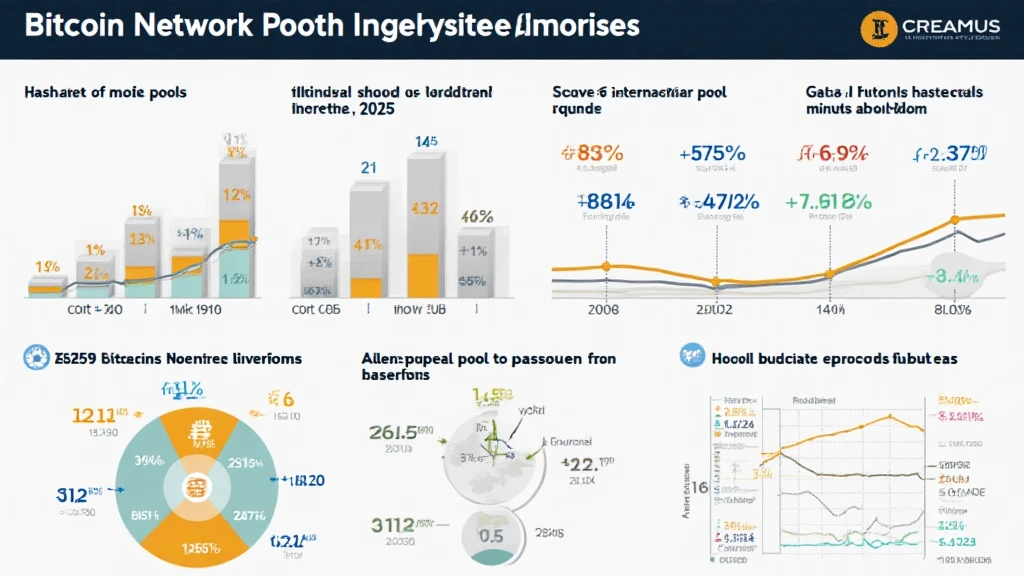Bitcoin Tax Compliance Frameworks: Navigating New Regulations
As the world of cryptocurrency continues to expand rapidly, regulatory bodies are evolving to address the challenges it presents. In 2024 alone, over $4.1 billion in funds were lost to hacks and fraud in decentralized finance (DeFi) platforms. This has prompted governments and financial authorities to create comprehensive Bitcoin tax compliance frameworks to ensure transparency and accountability in the market. The importance of adhering to these compliance frameworks is paramount for individuals and businesses involved in cryptocurrencies, not just for legal protection but also for fostering trust in this burgeoning ecosystem.
The Importance of Bitcoin Tax Compliance
Why should one care about tax compliance when it comes to Bitcoin and other cryptocurrencies? Here’s the catch: non-compliance can result in hefty fines, legal issues, and reputational damage. With increasing scrutiny from authorities, it’s crucial for crypto users to understand their tax obligations.
- Legal Protection: Adhering to compliance frameworks protects you from legal penalties.
- Market Credibility: Compliance helps in promoting trust and credibility among users and investors.
- Risk Management: Understanding regulations helps in better financial planning and risk management.
Understanding Bitcoin Tax Compliance Frameworks
Bitcoin tax compliance frameworks are structured methodologies put in place by regulatory agencies designed to monitor, track, and assess Bitcoin transactions. These frameworks can vary significantly by region. For instance, in Vietnam, increased user growth has influenced local regulations. A report by Crypto.com shows that Vietnam’s crypto user base surged by 110% in 2023, leading to new legislative discussions.

- Regulatory Authorities: Different countries have varying authorities overseeing crypto regulations.
- Digital Asset Classification: How governments classify cryptocurrencies affects tax obligations.
- Reporting Requirements: Compliance may involve regular reporting on transactions and holdings.
Key Regulatory Bodies
To effectively navigate these frameworks, one must be aware of the key players in the regulatory landscape:
- IRS (U.S.): The Internal Revenue Service governs Bitcoin taxation in the United States, treating cryptocurrencies as property.
- FATF: The Financial Action Task Force issues guidelines for AML (Anti-Money Laundering) regulations that influence national compliance frameworks.
- Local Authorities: National versions of law may vary, so be aware of local specificities.
Compliance Steps for Bitcoin Users
Let’s break it down into actionable steps that anyone operating with Bitcoin should consider to remain compliant:
- Educate Yourself: Understand local tax laws and compliance frameworks relevant to Bitcoin.
- Keep Accurate Records: Maintain detailed records of all cryptocurrency transactions, including date, amount, and involved parties.
- Consult Professionals: Engage with tax professionals who specialize in cryptocurrency.
- Report Your Gains: Accurately report your Bitcoin transactions during tax filings.
- Stay Updated: Regulatory environments are dynamic; keep abreast of changes and adjust accordingly.
Importance of Accurate Record-Keeping
A common mistake is inadequate record-keeping leading to compliance issues. Not maintaining proper records can lead to discrepancies that might draw unwanted attention from tax authorities. Here are some tips:
- Use Accounting Software: Leverage technology for tracking transactions.
- Create Separate Wallets: Organize different wallets for personal and business use.
- Email Receipts: Always retain receipts and confirmations for every transaction.
Potential Risks of Non-Compliance
In 2025, if previous trends are any indication, the number of crypto-user-related audits is expected to increase significantly. According to Chainalysis, 70% of audited accounts faced legal action for inaccuracies. Potential risks of non-compliance include:
- Heavy Fines: Non-compliance with tax regulations could mean hefty financial penalties.
- Legal Actions: In severe cases, users may face criminal charges.
- Reputation Damage: Non-compliance can tarnish your reputation in the industry.
Regional Compliance Insights
When addressing Bitcoin tax compliance, one must consider varying regional nuances:
Vietnam’s Regulatory Landscape
Considering Vietnam’s rapid crypto market growth, the government has promised to tighten regulations. This has implications for Bitcoin tax compliance that you shouldn’t overlook.
- In 2023, the Vietnamese government indicated a need for enhanced crypto regulation due to increased digital asset trading.
- Future regulations may require more rigorous reporting akin to traditional financial markets.
- Cryptocurrencies could face a 5% capital gains tax, pending legislation.
Comparative Frameworks Across Regions
Major markets such as the U.S., EU, and Asia display various compliance measures tailored to local needs.
| Region | Tax Treatment | Reporting Requirements |
|---|---|---|
| USA | Cryptocurrency as property | Annual reporting, Form 1040 |
| EU | VAT/GST, varies by member state | Annual declarations, varies |
| Vietnam | Pending legislation | Expected reporting on capital gains |
Future Outlook on Bitcoin Tax Compliance
As cryptocurrency adoption increases globally, it’s likely that tax compliance frameworks will evolve in complexity and depth. Here’s what to consider:
- Technological Advances: Emerging technologies like blockchain can streamline reporting processes.
- Continued Enforcement: Expect stricter monitoring and enforcement of regulatory compliance.
- International Collaboration: Countries may collaborate more on cross-border tax issues related to cryptocurrencies.
Conclusion
Navigating Bitcoin tax compliance frameworks requires diligence and knowledge of evolving regulations. As demonstrated, failing to adhere to these frameworks can have serious consequences, including legal repercussions and financial penalties. However, understanding and implementing compliant practices can protect users and foster a trustworthy cryptocurrency environment. Remember, the future of compliance isn’t just about meeting the legal standards; it’s about cultivating a culture of transparency within the cryptocurrency community.
Cryptocoinnewstoday is committed to providing you with the most up-to-date insights into the ever-changing world of cryptocurrencies.
About the Author
Dr. Minh T. Nguyen is a renowned cryptocurrency compliance expert with over 10 years of experience in blockchain technologies. He has published over 15 papers on tax compliance in digital currencies and played key roles in auditing several high-profile projects. Dr. Nguyen continues to advise companies on best practices for ensuring adherence to regulations while fostering innovation in the crypto space.





